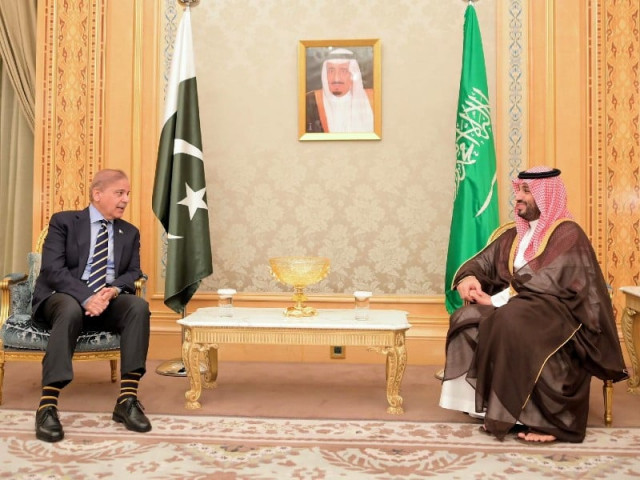Saudi Prince Muhammad Bin Salman’s acceptance of Prime Minister Shehbaz Sharif’s invitation to visit Pakistan marks the successful culmination of the latter’s recent three-day official visit to Saudi Arabia. Similarly, a landmark development took place last month when Iranian President His Highness Ebrahim Raisi concluded a successful three-day visit to Pakistan, with a pledge to increase bilateral trade from the current $2 billion to $10bn a year over the next five years.
Both countries affirmed their commitment to transform their common border from ‘border of peace’ to a ‘border of prosperity’ through joint development-oriented economic projects, including setting up joint border markets, economic free zones, and new border openings.
Before delineating upon the merits of the Pak-Saudi investment cooperation following the PM’s recent visit, as well as the importance of Pak-Iran improving ties following the visit of Iranian president to Pakistan, it is important to summarise a few gloomy factors that had actually marred the chances of a future potential Foreign direct investment (FDI) in our country from Saudi’s side
and the prospects of a future border security deal with the Iranian side. Given the fact that security, peace and FDI are correlated factors in ensuring the economic stability in a region.
Before the incumbent government came into power, the country was treading on a dangerous trajectory where our stability was increasingly dependent on the outcome of an ever-worsening economic crisis. Amid skyrocketing inflation, an environment of political rifts, and surging terrorism, the country was on the verge of default due to its massive external debt obligations, exacerbated by the derailment of the $6.5 billion International Monetary Fund (IMF) program Pakistan entered in 2019, as the international lender was unsatisfied with Pakistan’s commitment to reform and ability to arrange for funds to meet external financing requirements. Troublingly, Pakistan’s official foreign exchange reserves were hovering around $4 billion, which was insufficient to finance even a one-month of the country’s import bill.
Apart from an economic standstill, political instability and precarious law and order situation, another major barrier in attracting any kind of FDI was the repulsive investment climate in Pakistan exacerbated by undue interference from courts and the accountability institutions that in the past led to international arbitration. In a big financial blow, Pakistan was fined $6 billion by the World Bank’s International Centre for Settlement of Investment Disputes for cancelling a mining lease for the Reko Diq project to Australia’s Tethyan Copper Company. Foreign investors from UAE, Kuwait and Qatar were reluctant to bring major investment without having concrete guarantees. Saudi Arabia’s concerns were also the same before signing any FDI deal around $25 billion with Pakistan at that time.
PM Shehbaz’s visit is actually a sign of rectification of Saudi’s lost trust in our state and government of Pakistan. Future economic prospects are now bright and hopes are that our ailing economy would be uplifted through Saudi projects as diverse as petro-chemical products, mineral extraction, corporate farming and industrial production with expectations to a $5 billion Saudi investment by June 2025. Additionally, development of Gwadar port and setting up of an oil refinery on the shores of Balochistan has inevitably guaranteed that future of Pakistan is economically sound. There is no denying the fact that Shehbaz is a pragmatic prime minister, and Pakistan needs access to Saudi aid and investment besides peace on our borders in order to ensure a safe investment climate.
Saudi Arabia and Pakistan have a long history of collaboration and close ties. Pakistan has provided military and security support to Riyadh, and Saudi Arabia has provided financial assistance to buttress Pakistan’s weak economy. Similarly, Iran and Pakistan have close historical, religious and cultural ties that can be sustained and improved through peaceful cross-border trade and economic cooperation.
PM Shehbaz is seeking to repair his country’s weakened relationship with Saudi Arabia, and strike a balanced and pragmatic approach toward other Gulf countries, particularly Iran. The success of recent interactions of PM Shehbaz with the Saudi prince and Iranian president is proof that our future is bright and secure as Pakistan is in “safe hands”.



COMMENTS
Comments are moderated and generally will be posted if they are on-topic and not abusive.
For more information, please see our Comments FAQ